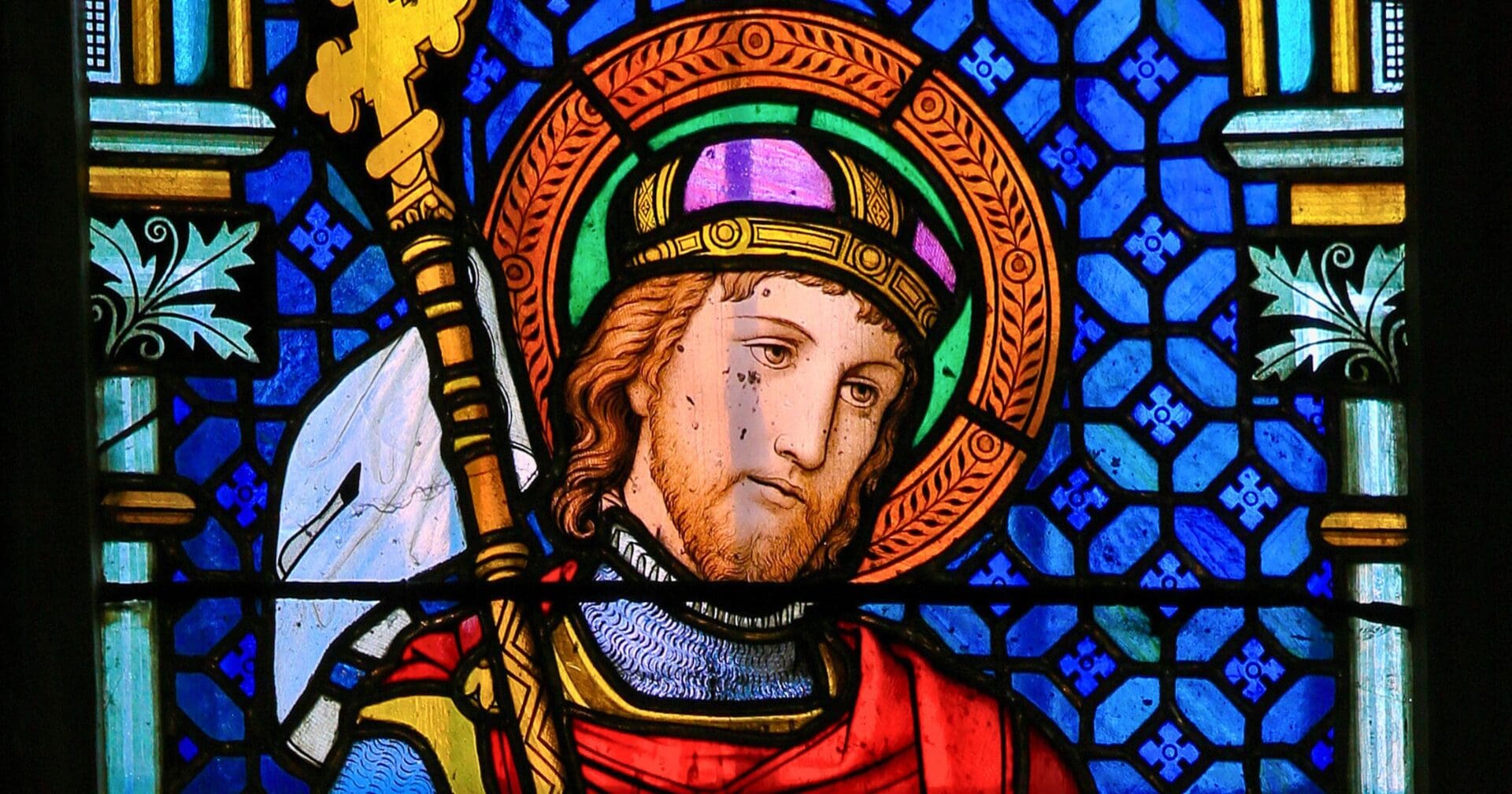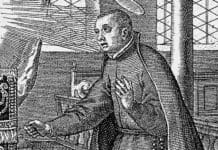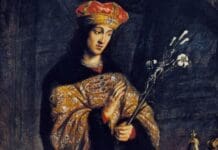Born circa 907 near Prague in present-day Czech Republic, Saint Wenceslaus was destined for a life of turbulence and spirituality. After the tragic death of his father in battle when Wenceslaus was only 13, his mother, the pagan Drahomira, ascended to the throne. She quickly ushered in an era of anti-Christian governance, a stark contrast to the Christian upbringing that Wenceslaus received from his grandmother, St. Ludmilla.
The tension between Drahomira and Ludmilla reached a boiling point when the former orchestrated the murder of the latter. Drahomira’s rule became increasingly oppressive in the name of young Wenceslaus. Recognizing the toll this was taking on his people, at 18, Wenceslaus overthrew his mother, taking the reins of the kingdom himself.
As a monarch, Wenceslaus was a beacon of Christian values. Collaborating closely with the Church, he tirelessly worked to transform his pagan homeland. Ending the persecution of Christians was top of his agenda, followed by constructing churches and recalling banished priests. His reign was marked by piety and philanthropy, earning him the affectionate title “Good King” from his subjects.
Wenceslaus led a life of chastity, and his compassion for the downtrodden was unparalleled. Not only did he provide for the poor, but he also personally attended their funerals, freed captives, and visited prisons. His dedication to his faith was profound; he took upon himself tasks like preparing wheat for altar breads and pressing grapes for ceremonial wine. Legend has it that in winter, he would traverse snowy terrains barefooted to churches, leaving a trail of bloodied footprints.
However, peace was not to last. In 929, the German king, Henry I, threatened invasion. Opting for peace over battle, Wenceslaus submitted, a decision that displeased his pagan brother, Boleslav. Under the guise of brotherly love, Boleslav invited Wenceslaus to his castle. The subsequent day, September 28, 929, en route to Mass, a treacherous Boleslav assassinated Wenceslaus.
Yet, in his final moments, Wenceslaus exemplified Christ-like forgiveness, pardoning his brother and praying for his salvation. His untimely death at 22 led to his canonization, making him the first Slav saint. Today, he stands as a symbol of hope and unity for the Czech Republic and is venerated as its national hero.
Saint Wenceslaus is not just the guardian of Bohemia, but also the patron saint for brewers and Moravia.

















Good………..amen…….
The most popular way to make money at home with your smartphone in 2023. Jobs Near me. Browse 186 open jobs and land a remote Online job today. See detailed job requirements,
compensation, duration,
b employer history, & apply today Click…… Latest Jobs Alerts
I visited Prague last spring, and when we toured the Prague Castle and St. Vitus’ Cathedral, our tour guide implied that St. Wenceslaus wasn’t even a Christian, but a pagan! It is so sad to know that the majority of the people in the Czeck Republic today claim to be atheists. St. Wenceslaus, pray for us!
His brother Boleslav showed remorse for his brother’s murder and eventually converted to Christianity. He even build Churches which he dedicated to his brother.
A devout life to Christianity is a Holy blessing.
Saint Wenceslaus, pray for us.
Saint Wenceslaus pray for us
St. Wenceslaus, pray for us.
O God, who taught the Martyr St Wenceslaus
to place the heavenly Kingdom before an earthly one,
grant through his prayers that, denying ourselves,
we may hold fast to you with all our heart.
Through our Lord Jesus Christ, your Son,
who lives and reigns with you
in the unity of the Holy Spirit,
one God, for ever and ever.
Amen.
Saint Wenceslaus pray for us amen
Saint Wenceslaus, pray for us. Especially for those who are persecuted for their faith, and are sometimes martyred without anyone to relay the truth. God the Father Almighty, please return the Czech people to fervent belief in Christ Crucified. Remove evil bishops and priests who pervert and mislead the Church. Holy Mary, help the helpless. Amen.
Ecce Crucem Domini!
Fugite partes adversae!
Vicit Leo de tribu Juda,
Radix David! Alleluia!
St Wenceslaus pray for us🙏🙏
The most popular way to make money at home with your smartphone in 2023. Jobs Near me. Browse 186 open jobs and land a remote Online job today. See detailed job requirements,
compensation, duration,
n employer history, & apply today Click…… Latest Jobs Alerts